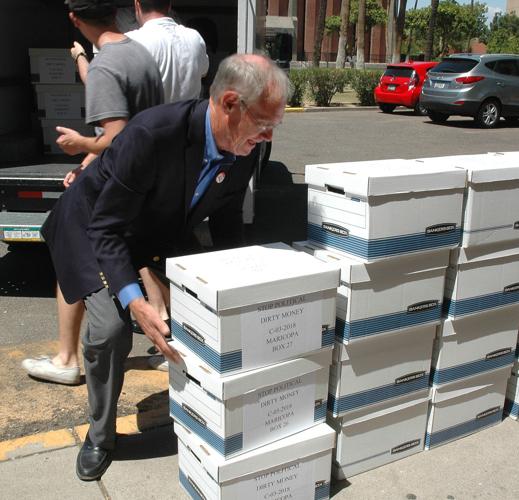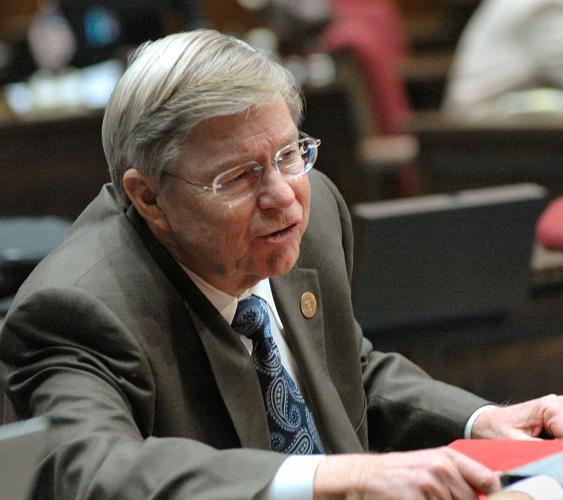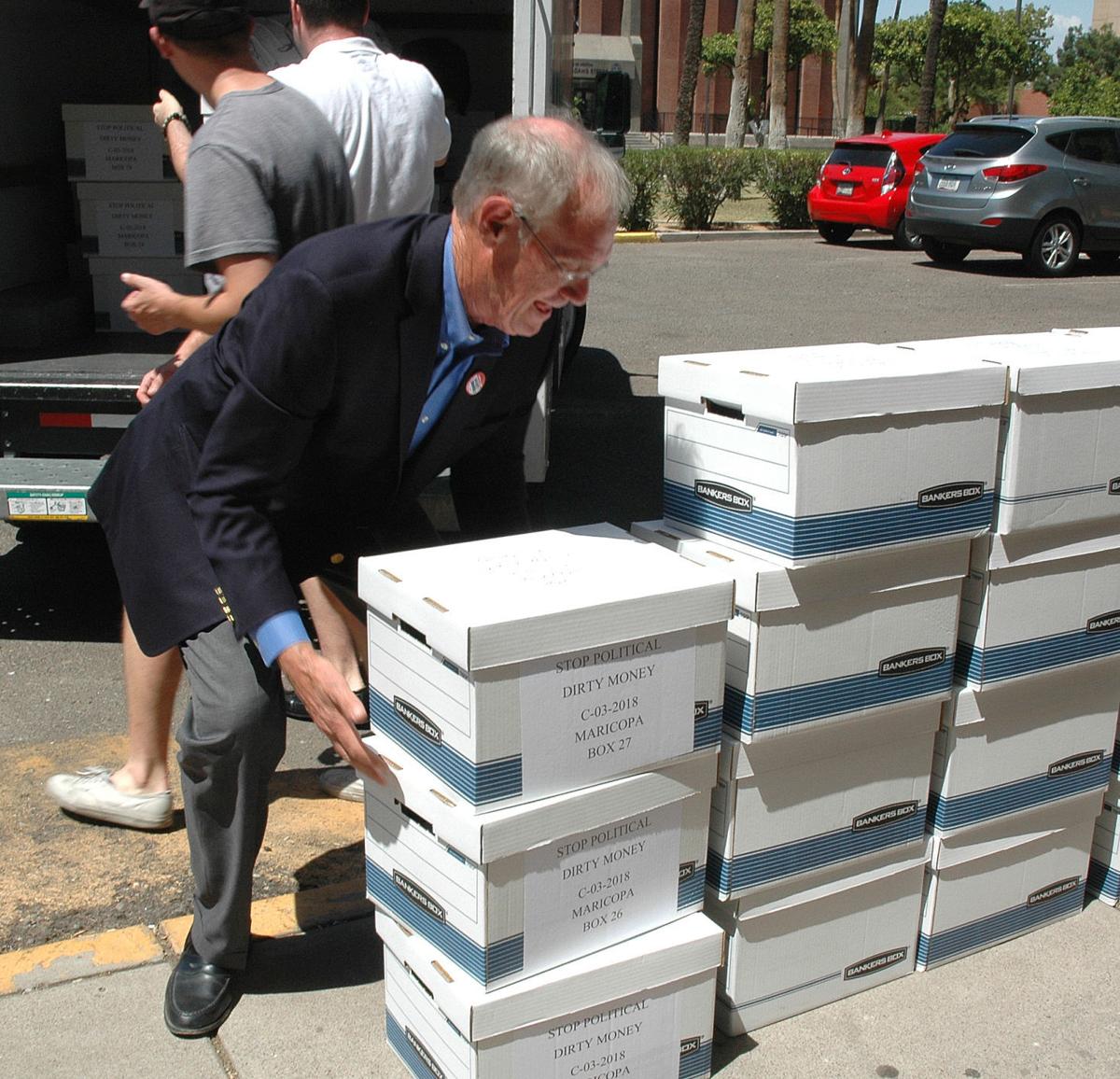PHOENIX — Armed with volunteers and 15 months until a deadline, former Attorney General Terry Goddard launched a new bid Tuesday to end “dark money” anonymous donations to Arizona political campaigns.
The initiative would create a “right to know” provision in the Arizona Constitution requiring public disclosure of the name and address of any individual who has put at least $5,000 into influencing the outcome of any election, whether directly or indirectly.
It would apply not just to donations directly to candidates, which essentially already is covered, but also donations to political action committees that then make their own contributions to candidates solely in the name of the group.
But the more significant provision applies to so-called “social welfare groups” that now can spend unlimited amounts of money on TV ads, mailers, billboards and phone calls both for and against candidates as well as supporting and opposing ballot measures. That would override a law approved by the Republican-controlled Legislature exempting those groups from having to disclose their donors.
Goddard tried a similar measure two years ago, gathering about 285,000 signatures.
But that was challenged by foes who got a trial judge to throw out the signatures of paid circulators who did not show up in court. That left the petition drive short of what was needed to make the ballot.
This time, said Goddard, things will be different.
First, he plans on using only volunteers to collect signatures. That curtails the opportunity for legal challenges for failing to meet a new host of requirements that now apply to paid circulators.
What else is different is that those volunteers have 15 months — until July 2, 2020 — to gather the 356,467 valid signatures needed to put the measure on the general election ballot that year. Goddard figures that should be enough, given the volunteers working last time gathered 150,000 signatures in just five months.
That, however, won’t stop the challenges expected from the same groups that filed suit last time, including Americans for Prosperity, an organization that is part of the Koch brothers network, and the Free Enterprise Club.
And state Sen. Vince Leach, R-Tucson, who has been at the forefront of efforts to protect anonymous donations, said he will do what he can to convince voters that allowing the government to gather that information, even if it is for public disclosure, is a bad idea.
Leach acknowledged there is evidence that at least some voters want to know who is putting money into campaigns.
In Tempe, a mandatory-disclosure measure was overwhelmingly approved by voters in 2017. But the legal fate of that is unclear as Leach has asked Attorney General Mark Brnovich to rule that ordinance runs afoul of Leach’s own bill to pre-empt local regulations of that kind.
Phoenix voters approved a similar plan with about 85 percent in favor. That has been held up while Gov. Doug Ducey, a longtime foe of expanded financial disclosure laws, exercises his constitutional right to review that public vote.
Leach brushed aside those two votes, suggesting that the voters in those two communities are not reflective of the rest of the state.
“You don’t have that type of election in SaddleBrooke,” he said, the largely Republican housing development in Pinal County in his legislative district. “No one would run in there because there you would get 95 percent — or maybe even 99 percent — saying, ‘Absolutely not. You don’t have a right to know.’”
What the initiative seeks to pierce are the records of groups classified by the Internal Revenue Service as “social welfare organizations.” They can spend up to half of their revenues influencing political campaigns.
Arizona law does require them to report their expenditures. But the source of the cash is exempt.
That is what allowed such groups to put $3.2 million into the 2014 campaign on behalf of Republican candidates for Arizona Corporation Commission without disclosing who provided the dollars. Arizona Public Service Co., the state’s largest electric utility, will neither confirm or deny it financed those efforts.
None of that would be possible if voters approve what Goddard hopes to put on the ballot. It is crafted so as not to apply to tiny campaign efforts. Only those groups that spend at least $20,000 on a statewide campaign or $10,000 on a local campaign would be covered.
And within that is the requirement to disclose who has put in at least $5,000. Goddard said that it is crafted to prohibit “chain donations,” ensuring that the mandate applies to the original donor, even if the cash has been run through several different organizations before winding up being spent to influence an Arizona election.
Enforcement would be left to the Citizens Clean Elections Commission.
The initiative also contains something else: language designed to protect the commission’s ability to enforce the disclosure requirements.
Last year, voters approved a measure that put the commission under the purview of the Governor’s Regulatory Review Council. That gave the panel, made up entirely of Ducey appointees, the power over the commission’s rules.
The initiative spells out that oversight does not extend to the commission’s ability “to promulgate rules or take necessary actions” to enforce the financial disclosure law if voters approve.
Leach said this is about more than unveiling who is behind political campaigns, saying that declaring the government can enforce some sort of “right to know” would set a bad precedent.”
“That opens up a whole host of problem areas for government intrusion,” he said.







